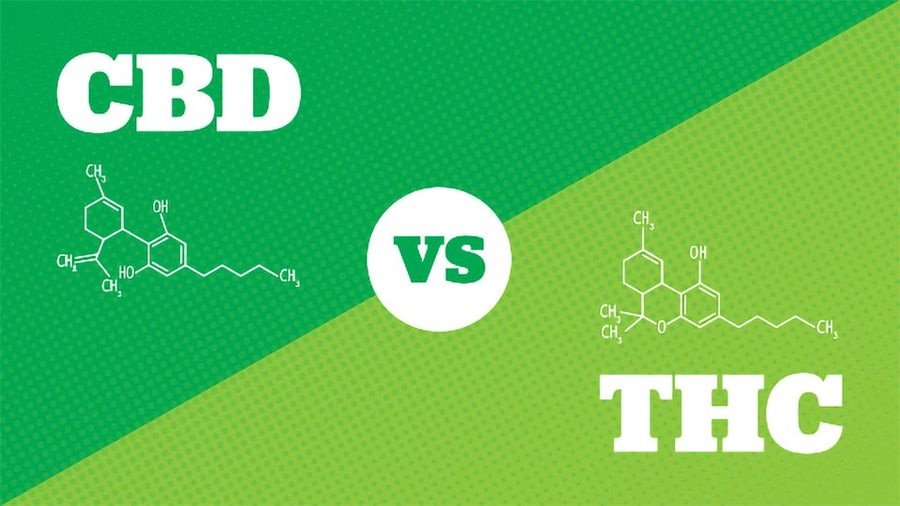Cannabis legalisation efforts are moving forward all over the globe. The potential benefits of cannabinoids like CBD and its potential health benefits has led to an increasing level of interest in the plant. One topic making headlines is the controversial discussion around using CBD and CBD flower as an aid to giving up Weed and THC. While many swear that it is an effective way to give up the THC, some argue that quitting one cannabinoid for another, isn’t for the best. In this blog post we will try and explore the current research and discussions around using CBD flower to give up THC.
A brief overview of CBD
CBD or Cannabidiol, is one of hundreds of naturally occurring compounds found within the Cannabis plant. Delta-9-tetrahydrocannabinol (THC) is the more famous sibling of CBD, unlike THC CBD is not psychoactive, meaning it doesn't cause the high most associated with Marijuana. There have been many anecdotal claims that CBD has a number of therapeutic effects such as reducing anxiety, reducing inflammation and helping relieve pain. This has led to CBD products becoming increasingly popular as the public become more aware of the benefits of CBD
Can CBD really help you quit weed?
The theory behind using CBD as a tool to quit weed stems from the assumption that some individuals may be experiencing addiction to THC because of an imbalance in their body's natural endocannabinoid system. CBD is believed to interact with this system, possibly helping to restore balance and reduce withdrawal symptoms when trying to quit weed. Some recent studies provide insights into this potential therapeutic effect. There are CBD Flower Strains on the market today that are very similar to their THC counterpart. Such as our Pink Starburst, OG Kush and Skittlez. There are even CBD Hash strains on the market
Is CBD really able to help you quit weed?
The main theory behind using CBD Flower as a way to give up THC weed stems from the assumption that some people may experience an addiction to THC, due to an imbalance in their body’s natural endocannabinoid system. It’s believed that CBD interacts with this system and potentially helps restore balance and reduce withdrawal symptoms when trying to quit weed. I think it goes further than this. There’s a whole routine to rolling that some people find quite therapeutic. Switching THC flower for CBD flower means that you still have the routine of grinding, rolling and smoking. Although as ever, we would always recommend dry herb vaping over smoking.
The Research on Cannabis Addiction and CBD
JAMA internal Medicine published a study back in 2020 revealed that individuals using CBD flower reported lower levels of THC use and exhibited fewer cannabis withdrawal symptoms compared to those using low CBD strains. The authors of these studies concluded that CBD may have the potential to reduce cannabis consumption without increasing the severity of withdrawal symptoms
In 2019 a study published in the Journal of Clinical Psychiatry researched the effects of CBD on cue induced cravings among people with a history of cannabis abuse. During the study it was found that a single dose of CBD successfully reduced cravings of THC, which suggests there is a potential for therapeutic use of CBD in managing cannabis addiction. A landmark 2018 trial published in Addiction, researchers provided participants with CBD as an adjunct treatment to CBT (cognitive behavioural therapy) for cannabis use. The research demonstrated that those treated with CBD were almost twice as like to abstain from cannabis that those who received a placebo
Whilst research on CBD as a treatment for Cannabis addiction is still in its early stages, these studies do offer hope to those looking for alternative ways to quit weed. Although these studies are still in their early stages, it’s looking hopeful none the less. Furthermore, future studies may be necessary to determine the correct dosage, method of consumption and the duration of treatment for optimal results.
Debating the benefits of CBD for quitting weed and addressing concerns.
The debate about using CBD to quit weed is generally divided into two main camps. On the one side, supporters argue that CBD is a less harmful alternative to traditional medication used to treat dependence or withdrawals from cannabis use. Evidence of CBD’s ability to interact with the ECS (Endocannabinoid System) is often cited as evidence that CBD does indeed have the ability to reduce marijuana use and to reduce cravings in those who are attempting to give up THC.
The sceptics, on the other hand, question the logic behind using another component of the same flower to treat addiction to the plant. There is a worry about the possible risks that are often associated with long term CBD use and highlight the need for more extensive research before advising individuals to use CBD to quit weed. Some critics of the studies also emphasise that relying solely on CBD might not be enough, as cannabis addiction often involves additional factors such as unhealthy coping mechanisms, life stressors, and emotional dysregulation. For those individuals, addressing the underlying causes with the support of healthcare professionals or self help groups may results in better outcomes that just using CBD alone
Alternatives to Quitting Weed
If you’re thinking about quitting weed and using CBD Flower to do so, but you’re not quite sure if it’s right for you, there are other approaches that can help in overcoming marijuana addiction
Seek professional treatment: Collaborating with a mental health or substance abuse expert can offer support, organization, and tools to assist you in establishing objectives, recognizing triggers, and developing effective coping mechanisms for ceasing marijuana use. Various therapeutic approaches, such as Cognitive-Behavioural Therapy (CBT), motivational interviewing, and participation in 12-step programs, exemplify successful treatments that aid individuals in overcoming cannabis addiction.
Build a support network: Involving family, friends, or becoming part of a support community such as Marijuana Anonymous (MA) can establish a supportive atmosphere, providing understanding, motivation, and accountability as you work towards quitting cannabis.
Regarding medications, if withdrawal symptoms pose challenges to quitting, your healthcare provider may recommend medications to alleviate specific physical and psychological issues linked to marijuana cessation, such as nausea, irritability, anxiety, or sleep disturbances.
Lifestyle changes: Adopting healthier habits such as regular exercise, proper diet, and adequate sleep can make a significant difference in managing cravings and maintaining abstinence from marijuana use.
Conclusion
Whiile preliminary evidence suggests that CBD may have some potential to aid in quitting weed, the research is still lacking. It is essential to consider the limitations of the existing studies and weigh the benefits and risks before using it as a tool to overcome cannabis addiction. Alternatives such as professional treatment, support networks, and lifestyle changes may prove more effective for many individuals facing marijuana use disorder or withdrawal symptoms.

